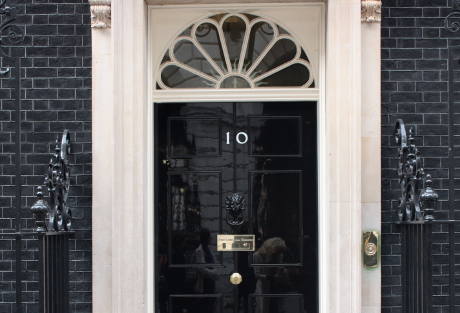Blog

The general election is just weeks away (hooray!) and the major political parties have published their manifestos (double hooray!). What’s more, AllAboutLaw.co.uk have decided to take a look into what the parties are proposing when it comes to business (triple hooray!).
The Labour Party
In Ed Miliband’s bid for No. 10, Labour claim that they “will be a government that is both pro-business and pro-worker. We value all our businesses as organisations of innovation and wealth production, and we will work strategically with them to create wealth.” But what measures are they actually planning on putting in place?
Labour first relate their policies to business by mentioning that “Britain will continue to have the most competitive rate of Corporation Tax in the G7.” In practice, this is most likely to mean that they won’t reverse George Osbourne’s measure of cutting the rate of corporation tax to 20%. However, Labour are keen to stress that cutting corporation tax further would not benefit small businesses. Instead, they propose cutting and freezing small business rates, which is a tax based on the rental value of a business property. They reckon this will save business about £400, which is a decent amount of the £1,500 extra a year business have paid due to higher rates.
The party are also keen on creating a British Investment Bank that lends money to viable businesses in addition to any private lending the business has secured. Ed hired former Herbert Smith Freehills partner Nick Tott to investigate the need for such a body which will allow small and medium-sized business to have better access to finance, and they concluded that a British Investment Bank should exist, given that “existing small businesses contribute 34% of new jobs created, whilst new business start-ups contribute 33%”.
They’re also pretty opposed to zero-hour contracts, and will ban them entirely. Labour will also offer tax rebates to businesses who sign up to pay the Living Wage in the first year of a Labour government.
The Conservative Party
On the other side of the bench, David Cameron and the Conservative party manifesto waffles on a bit about how the government have saved us all from ‘Labour’s Great Recession’. However, following that, they detail how they want to continue in cutting the ‘jobs tax’ (employers’ National Insurance contributions) so that no business pays National Insurance for young apprentices under 25. They’re also wanting to provide smaller businesses with not having to pay the first £2,000 of employers’ National Insurance, meaning that businesses have more money to invest back into their company to potentially create new jobs.
In a similar move to Labour’s British Investment Bank, the Tories was to treble the size of the Start Up Loans programme, meaning more people can borrow money to set up a business.
The Lib Dems, The SNP & UKIP
Whilst Ed or Dave are likely to be Prime Minister this time in one month, it’s looking increasingly likely that they’ll need to be made king by one of the other parties. Nick Clegg was kingmaker last time out and could still have a role to play. Like Labour and the Conservatives, Liberal Democrat measures include reforming business taxes, whilst also encouraging employers to introduce flexible working hours.
The SNP are all but certain to support a Labour led government over a Tory one, and they want to ensure that a law is passed to ensure that businesses don’t suffer from late payments. As for UKIP, they’ve pledged to make sure that corporations pay their taxes (but say nothing about rates). Nigel Farage also wants to “Allow British businesses to choose to employ British citizens first” (we’ll let you decide on that one) and they also want to reduce business rates and late payments.
Whoever gains power in May, it looks very likely that corporation tax will remain low comparative to other countries and all parties are aware of the economic importance of small businesses. They want to make it easier for these businesses to keep and have access to much needed funds in order to facilitate job - and ultimately wealth - creation.
Academy tools to help you get a job
-

Free Watson Glaser Practice Test
Understand the test format, compare your performance with others, and boost your critical thinking skills.
